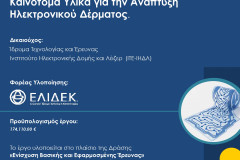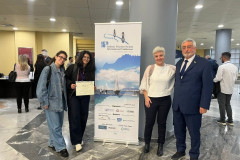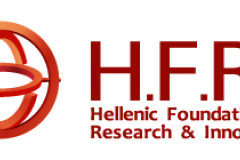In the era of artificial intelligence and human-machine interaction, developing artificial skin that will endow robots with "human touch", restore sensory capabilities to amputees, or provide continuous monitoring of our vital signs, is becoming a necessity. For the realization of the electronic skin technology, flexible electronic devices should be fabricated employing electrically active materials that can stretch to conform to human movement and can self-repair when mechanically damaged. This is the challenge that Pol-eSkin will address. To do so, we design and we will prepare novel functional materials that combine intrinsic stretchability with high electrical performance and the ability to self-heal. The materials that Pol-eSkin is proposing are EDOT-based conducting polymers, functionalized with urea or disulfide groups to activate autonomous self-healing, and engineered with ionic additives that act as stretchability and electrical conductivity enhancers. Physical characterizations and performance tests will be conducted to evaluate the critical functionalities of the developed materials and to optimize them by properly tuning their chemical or microscopic structure. The project is carried out within the framework of the National Recovery and Resilience Plan Greece 2.0, funded by the European Union – NextGenerationEU (Implementation body: HFRI).
Funding












